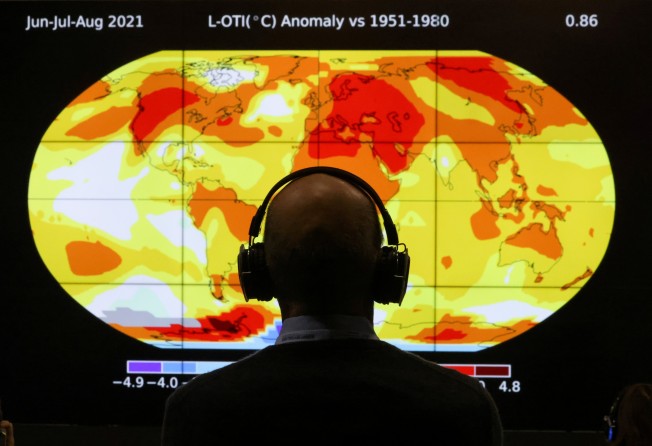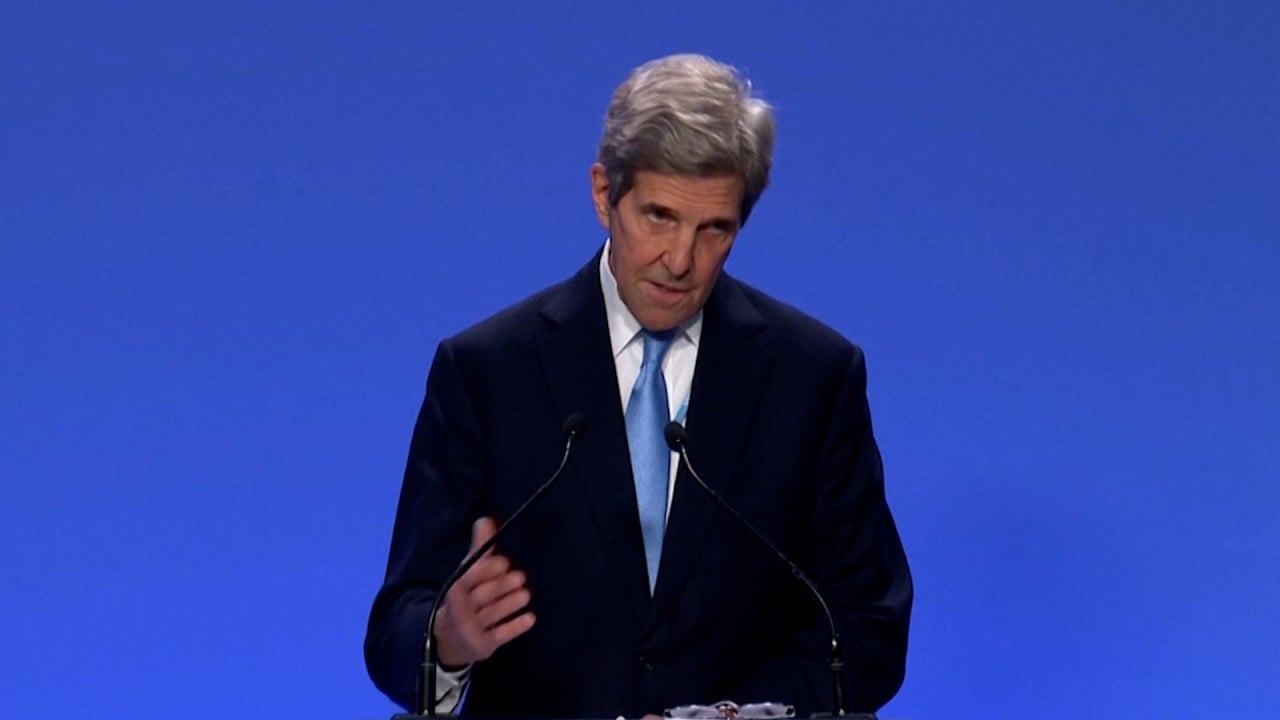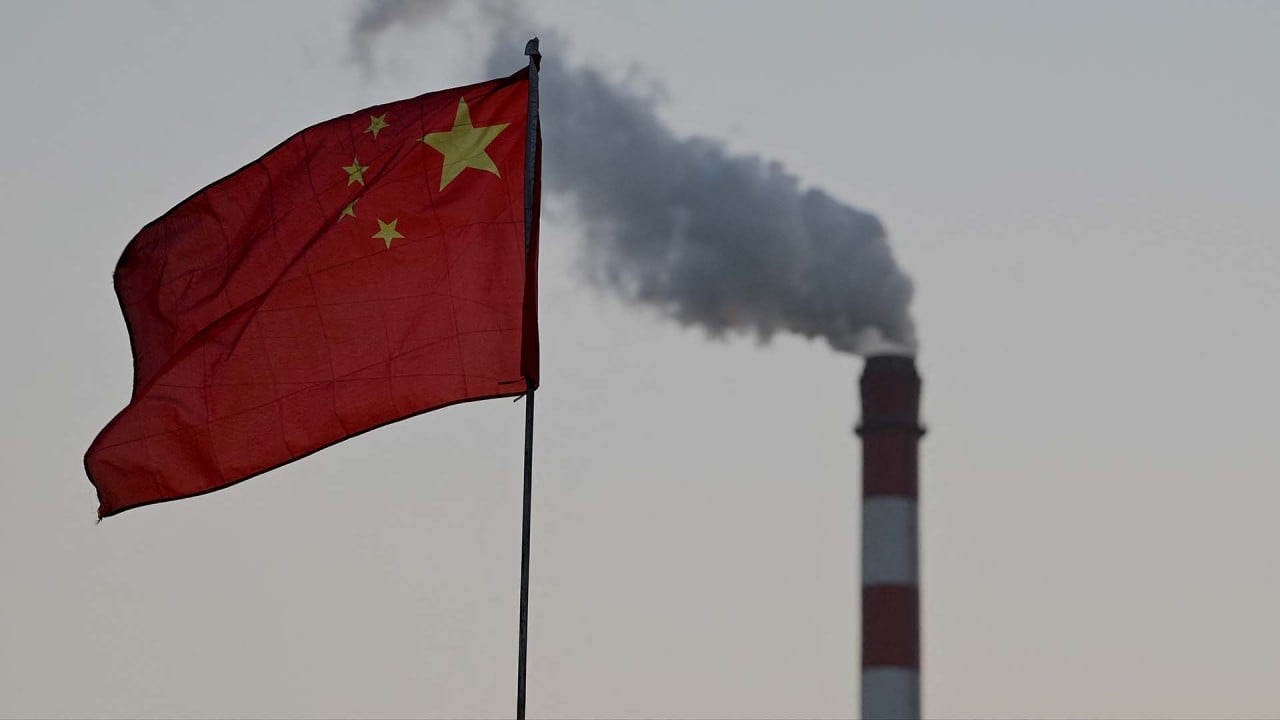Coal central to China’s zero carbon goals, top US envoy to Beijing says
- US and China ‘cooperating productively’ on climate change, with more channels of engagement in the works, US embassy chief David Meale says
- But China must bring forward its peak emissions target, or the 1.5 degree global warming target hangs in the balance, he warns

The US and China are working together on climate change, but Beijing must step up efforts to deliver on emission cuts, the US’ top diplomat in China has said.
David Meale, chargé d’affaires of the US embassy in Beijing, said climate envoys John Kerry and Xie Zhenhua had spoken “dozens of times” and developed a “very collaborative” relationship.
“Nowhere is the climate question more important than engagement between the US and China,” Meale said on Friday while opening an outdoor exhibition by the embassy titled “Art for the People: The Earth”, showcasing US street art on climate change.
Despite heightened tensions in the overall China-US relationship, climate change was one area where Beijing and Washington “are cooperating and cooperating productively”, he said.
China aims to reach peak carbon emissions by 2030 and become carbon neutral before 2060. But it has faced persistent calls to do more to reduce emissions, such as bringing forward its carbon neutrality goal to 2050.
This is deemed necessary to help limit global warming to 1.5 degrees above pre-industrial levels, the main target of the 2015 Paris Agreement.
“There is an extraordinary need for engagement, exchange of expertise, [and] collaborative thinking to ask ourselves, how can China step up its ambition and step up its timeline so that we can rescue the 1.5 degrees goal?” Meale said.
The US and China issued a joint declaration in November to fight climate change, pledging to cooperate on forming regulatory frameworks to cut emissions, protect forests, improve the exchange of technology and information, and ramp up use of renewable energies.
Meale said progress was under way to set up channels of engagement built on the points in the joint declaration.
As part of its carbon neutral drive, China, the world’s biggest coal producer, has promised to strictly limit the increase in consumption of the fossil fuel over the next five years and start cutting its use from 2026.
But the country has had to pace up coal production in the last two months to address a rare energy crunch that hobbled the manufacturing sector and disrupted daily lives.
Meale said it was a short-term disturbance for China’s climate policy but “coal is absolutely central to getting China to enhance its ambition and accelerate its timelines”.
“If we cannot get to a point where we are going to accelerate the timeline for getting to the peak on emissions, the 1.5 degree goal hangs in the balance”.
“When you have an economy that is overwhelmingly dependent on coal as a fuel and when you have enormous expertise that is capable of pointing out rather easy and straightforward ways to address that dependence, there is plenty of room for new ambition, plenty of room for speeding up the process to getting to that peak number, and for thinking about when and how to restructure the reliance on different fuel sources,” he said.
China, the largest public financier of overseas coal-fired power plants, pledged in September to stop building any new such projects abroad.
However, Beijing has so far been short on details, neither elaborating on any policy change relating to overseas coal-fired projects already signed but yet to start construction, nor on its policy banks’ ongoing financing projects.
According to a Goldman Sachs estimate, China is expected to invest US$16 trillion in infrastructure that would create 40 million new jobs for its 2060 carbon neutrality target.
The US embassy also said it had held discussions with Chinese research institutions and officials on technologies and experience, for a smooth green transition.
At a key meeting last week to lay out economic priorities for 2022, China’s top leadership warned against the mindset of “attributing success to one battle” in achieving climate targets and said the phasing out of fossil fuels should be replaced by new energy “safely and reliably”.
Lou Jiwei, China’s outspoken former finance minister, said on Saturday that the country’s climate targets were not hard-line requirements, and called for a balanced and holistic approach.
On the corporate level, a joint working group on green finance was set up on December 4 by Goldman Sachs and the International Finance Forum, a high-level dialogue platform co-sponsored by business leaders and scholars based in Beijing, to facilitate the green transition and encourage policy recommendations.

